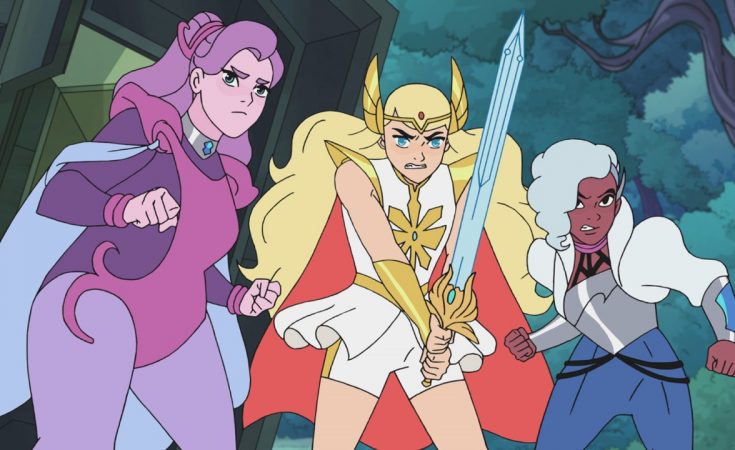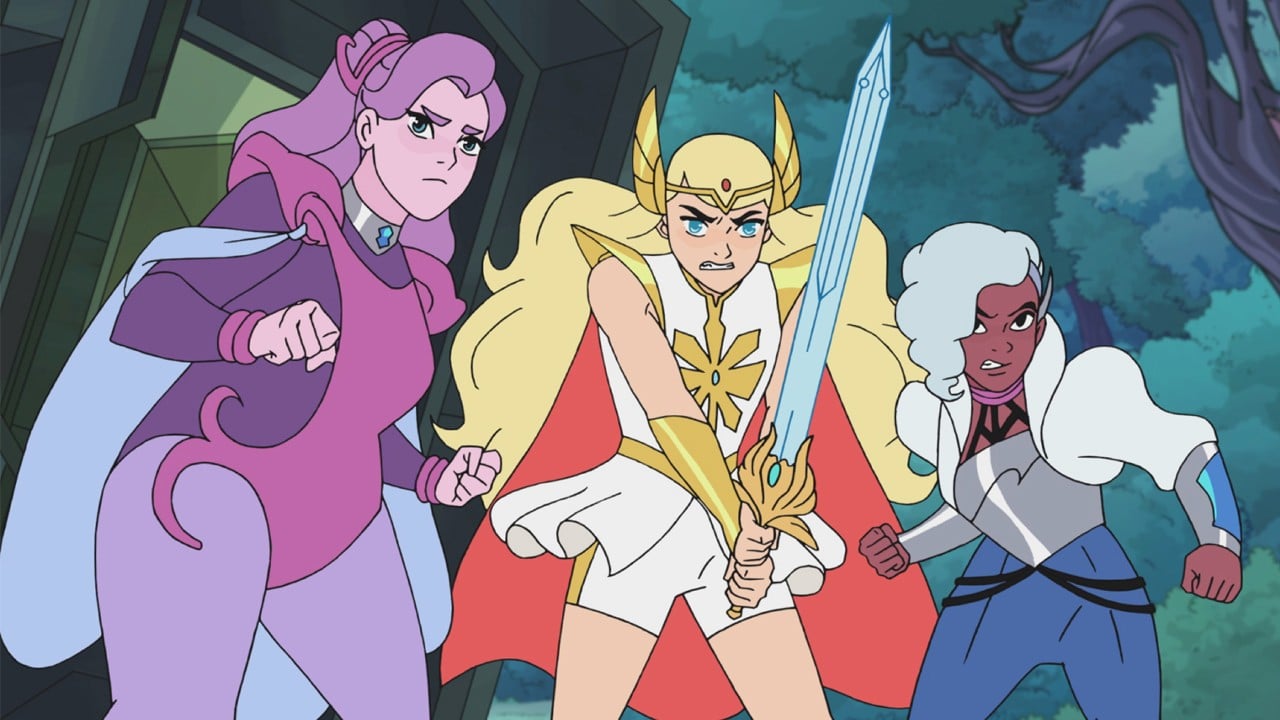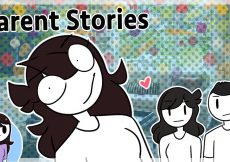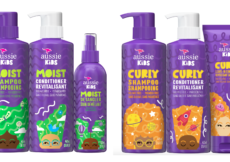Throughout COVID-19, my raft of hope has been built by the ritual of watching cartoons as a family.
When the pandemic hit Toronto, I never would’ve guessed that what would keep my family healthy would be a life-saving vaccine and a nightly ritual of watching cartoons. The episodic nature of television has given my little trio the chance at daily do-overs. The evening meet-ups on the couch together have given us the space to redact ill-chosen words that might have been used throughout the day during the stressful hours of online school. Each animated season is a fresh start to contrast the pandemic’s ongoingness. And what watching these shows has given me personally is something I didn’t even know I needed—hope.
Two episodes a night of She-Ra and the Princesses of Power, or Voltron: Legendary Defender, or Carmen Sandiego or Centaurworld, watched through an anti-racist feminist lens, has helped me grow as a mother and a teacher. And I’m not alone in my adult appreciation for these shows. With its celebration of 2SLGBTQ+ relationships, She-Ra won GLAAD awards in both 2020 and 2021 for Outstanding Kids & Family Programming. The presentations of diverse family structures are lauded by fans of both Carmen Sandiego and Voltron, where same-sex relationships are woven into the storytelling instead of being used as plot devices. The thematic complexities of Centaurworld exemplify the power of fantastical storytelling.
She-Ra and the Princesses of Power is the story of Adora, a soldier on the planet of Etheria, who finds a magical sword and with it becomes the great champion She-Ra. Listening to my seven-year-old son belt out the show’s theme song is downright inspired! Good and evil are not oversimplified in this show, where love and family are celebrated in many forms and toxic relationships are navigated with nuance.
Netflix’s Carmen Sandiego brings back the globetrotting thief of my middle school years. Even as her signature red hat and trench coat are nostalgic reminders of my childhood, the series’ strength lies in its ability to bring to the fore the interconnected nature of our world. As her handler recites geographical details to prepare Carmen for her missions, viewers learn about the social and economic effects of globalization and capitalism.
Voltron: Legendary Defender follows the sci-fi adventures of five young people who take to the skies in flying robot lions that combine to form the giant robot Voltron. Their alien leader is Princess Allura who, with Voltron, strives to defeat the evil Galra Empire. The series sounds silly, as so many science fiction plotlines do, but as any sci-fi reader knows, metaphors for life’s challenges abound in such storytelling. Questions of gender alignment, parental abandonment, racism and sexism are layered through all eight seasons. Different episodes act as anchor texts to ground the big emotions at play for characters and viewers alike.
I started watching Centaurworld because I heard the show was funny—I didn’t anticipate that it would have me in tears. The premise is that protagonist Horse loses her rider in the midst of battle when she falls through a magical rift into the cotton candy-coloured Centaurworld. There, Horse meets a small herd of quirky half-human, half-animal centaurs who work together to reunite their new friend with her rider. The herd, and the variety of centaurs they meet along the way, randomly burst into ridiculous songs that somehow work to make this show both sophisticated and thought-provoking. For me, lines like, “We are all just fragile things, soft and small and haven’t been here before” manage to sum up pandemic life better than any NYT op-ed. In the series finale, I sobbed outright when two characters attempted to comfort each other, singing the poignant question, “When it all starts over, how do these scars begin to mend?”
In spite of the rainbows and scatological humour, the themes encountered in the show require care to navigate with a younger child. One reviewer theorizes that one of the episodes works through suicide ideations, a pain that has touched my own family’s story. My son was only five when I tried to carefully explain the pain of a loved one’s death by suicide. Centaurworld has gifted me a do-over for that discussion.
American writer Ralph Ellison has said that novels have the potential to be rafts of hope in challenging times. Throughout this extended season of COVID-19, my raft of hope has been built not by reading novels but by the ritual of watching cartoons as a family. Each episode is bound together with the rope of familial time spent and discussions had. Logs secured together with words and tears and laughter, the raft has become strong enough to handle the weight of my worries, my son’s anxieties and my husband’s world-weariness. Unlike our weekends filled with movie marathons and too many bowls of chips, our weekday television time has helped us to develop healthier habits, learning with and about each other. Whatever it brings, I know I can get through the next season with hope—because hope floats and I’m not alone on this raft.
Stay in touch
Subscribe to Today’s Parent’s daily newsletter for our best parenting news, tips, essays and recipes.



































